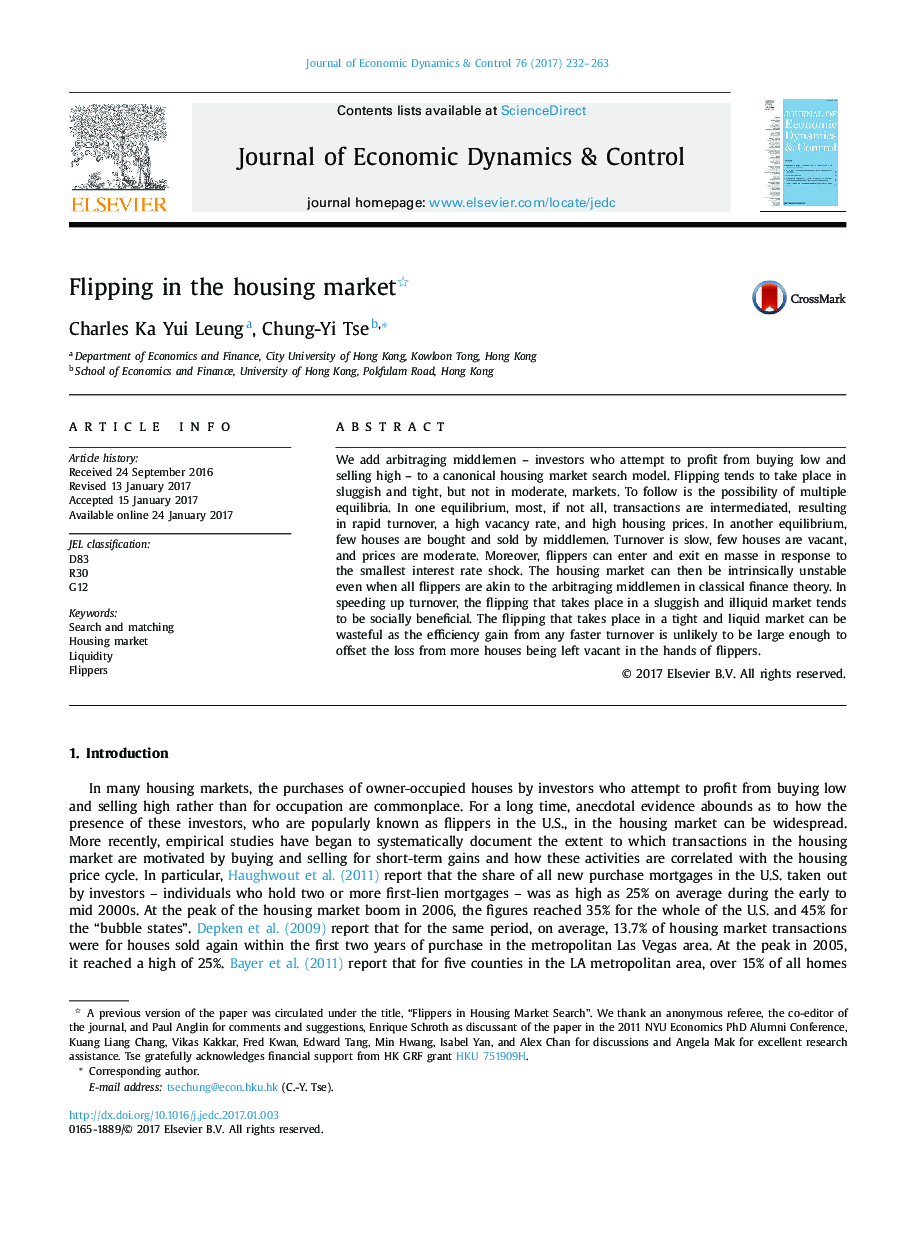| Article ID | Journal | Published Year | Pages | File Type |
|---|---|---|---|---|
| 5098015 | Journal of Economic Dynamics and Control | 2017 | 32 Pages |
Abstract
We add arbitraging middlemen - investors who attempt to profit from buying low and selling high - to a canonical housing market search model. Flipping tends to take place in sluggish and tight, but not in moderate, markets. To follow is the possibility of multiple equilibria. In one equilibrium, most, if not all, transactions are intermediated, resulting in rapid turnover, a high vacancy rate, and high housing prices. In another equilibrium, few houses are bought and sold by middlemen. Turnover is slow, few houses are vacant, and prices are moderate. Moreover, flippers can enter and exit en masse in response to the smallest interest rate shock. The housing market can then be intrinsically unstable even when all flippers are akin to the arbitraging middlemen in classical finance theory. In speeding up turnover, the flipping that takes place in a sluggish and illiquid market tends to be socially beneficial. The flipping that takes place in a tight and liquid market can be wasteful as the efficiency gain from any faster turnover is unlikely to be large enough to offset the loss from more houses being left vacant in the hands of flippers.
Related Topics
Physical Sciences and Engineering
Mathematics
Control and Optimization
Authors
Charles Ka Yui Leung, Chung-Yi Tse,
